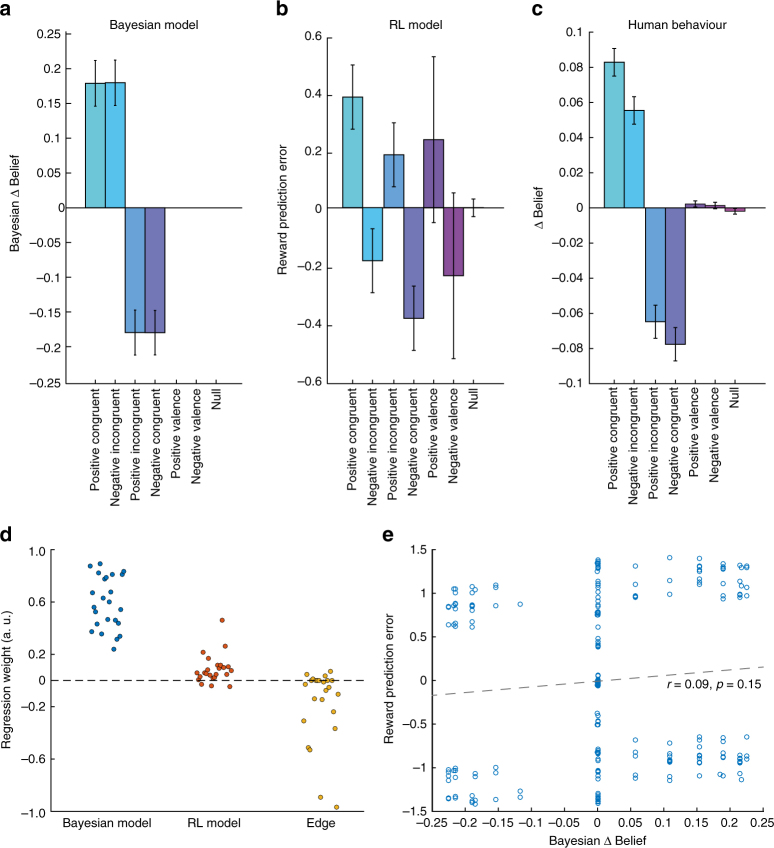Fig. 2.
Modelled and observed behaviour in the task. The Bayesian learner a updates equally on congruent and incongruent informative events, and does not update on non-informative events (rightmost three entries). b Reward prediction errors (RPE) that update the model-free reinforcement-learner (RL) do not differentiate informative and non-informative events, and instead mainly reflect the valence of the outcome. c Human participants update their beliefs positively on positive congruent and negative incongruent events and vice versa for negative updating. They also do not update their belief estimates significantly on non-informative valence events, but instead show characteristics of biased updating by model-free learning: they update beliefs significantly less on incongruent pay-outs (see Supplementary Fig. 1 for a more in-depth analysis of the congruency effect). d Results of within-participant regression analyses comparing the influence of both learning models. All participants in the study were described by the update predicted by the Bayesian model, yet additionally a significant positive covariation between participants’ belief estimate updates and the model-free RPE was seen. Factor edge controlled for the tendency of some participants to decrease updating at extreme values of possible beliefs (i.e., zero or one, t 23 = −3.0, p = 0.0063). e Correlation of Bayesian belief update and normalised RPE across the task in one random example participant illustrating that both regressors were de-correlated. Predictions of both models are based on 5000 random trial sequences. Error-bars represent SD in plots a and b, and SE in c

